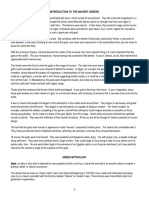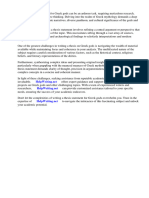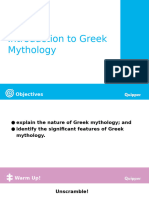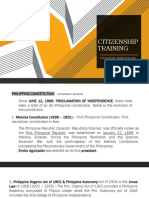0 ratings0% found this document useful (0 votes)
4 viewsPercy Jackson Questions
Percy Jackson Questions
Uploaded by
Lihle MahlanguCopyright:
© All Rights Reserved
Available Formats
Download as PDF, TXT or read online from Scribd
Percy Jackson Questions
Percy Jackson Questions
Uploaded by
Lihle Mahlangu0 ratings0% found this document useful (0 votes)
4 views2 pagesOriginal Title
Percy_Jackson_Questions[1]
Copyright
© © All Rights Reserved
Available Formats
PDF, TXT or read online from Scribd
Share this document
Did you find this document useful?
Is this content inappropriate?
Copyright:
© All Rights Reserved
Available Formats
Download as PDF, TXT or read online from Scribd
Download as pdf or txt
0 ratings0% found this document useful (0 votes)
4 views2 pagesPercy Jackson Questions
Percy Jackson Questions
Uploaded by
Lihle MahlanguCopyright:
© All Rights Reserved
Available Formats
Download as PDF, TXT or read online from Scribd
Download as pdf or txt
You are on page 1of 2
Percy Jackson Questions
1. State the difference between fiction and non-fiction.
Fiction is a literary genre that involves storytelling using imaginative or invented
elements, characters, and events, whereas non-fiction is a genre that presents
factual information, real events, and true stories.
2. What is the difference between a protagonist and an antagonist?
A protagonist is the main character in a story, typically the one with whom the
reader or audience sympathizes and follows throughout the narrative. An
antagonist, on the other hand, is a character or force that opposes the protagonist,
creating conflict in the story.
3. Judging from the novel “Percy Jackson and the Lightening Thief”.
Who do you think is the antagonist? Give a reason for your answer.
In "Percy Jackson and the Lightning Thief," the antagonist is primarily Hades, the
Greek god of the Underworld. He is the one who accuses Percy of stealing Zeus'
lightning bolt and seeks retribution throughout the novel. Percy also faces other
adversaries, but Hades plays a significant role in the story's conflict.
4. Who is the author of the novel, Percy Jackson?
The author of the novel "Percy Jackson and the Lightning Thief" is Rick Riordan
5. Why did the author choose to write this novel?
Rick Riordan wrote the Percy Jackson series to inspire and engage young readers
with Greek mythology in a modern and relatable context. He wanted to create an
exciting adventure that would also educate readers about Greek myths.
6. State 4 interesting facts about the author
a. Before becoming a full-time writer, Rick Riordan was a middle school English
and social studies teacher.
b. He was inspired to write the Percy Jackson series after telling bedtime stories to
his son, Haley, who was diagnosed with ADHD and dyslexia.
c. Rick Riordan has also written other popular series, including "The Kane
Chronicles" and "Magnus Chase and the Gods of Asgard," which explore Egyptian
and Norse mythology, respectively.
d. He started a foundation called Read Riordan to promote literacy and provide
resources for educators and young readers.
7. What type of novel is Percy Jackson?
"Percy Jackson and the Lightning Thief" is a fantasy novel that incorporates
elements of Greek mythology into a contemporary setting, making it a young adult
fantasy adventure.
8. What do you think the term demigod means, give an example.
The term "demigod" refers to a being who is part divine (god or goddess) and part
mortal (human). In Greek mythology, demigods are typically the offspring of a god
or goddess and a mortal. For example, Percy Jackson himself is a demigod
because his father is Poseidon, the Greek god of the sea, and his mother is a
mortal.
9. Can Percy Jackson be classified as a Demigod?
es, Percy Jackson can be classified as a demigod because he is the son of
Poseidon, a Greek god, and a mortal woman.
10. The novel is based on Greek mythology, what does that mean?
"Percy Jackson and the Lightning Thief" is based on Greek mythology,
which means it draws inspiration from the stories, gods, creatures, and
legends of ancient Greece. The novel incorporates these mythological
elements into a modern-day setting.
11. Based on the title, what do you think the novel is talking about?
Based on the title, the novel likely revolves around a character named Percy
Jackson and an incident involving the theft of Zeus' lightning bolt. It suggests that
the plot will center on Percy's quest to resolve this issue.
12. Name 4 types of gods found in Greek Mythology and give a
description of each.
Four types of gods found in Greek Mythology and their descriptions: a. Zeus: The
king of the gods and the ruler of Mount Olympus. He is associated with thunder
and the sky.
b. Athena: The goddess of wisdom, courage, and warfare. She is often depicted
with an owl.
c. Aphrodite: The goddess of love, beauty, and desire. She is known for her
enchanting beauty.
d. Hades: The god of the Underworld and ruler of the dead. He is often portrayed
as stern and gloomy.
13. How are gods different from humans?
Gods in Greek mythology are immortal and possess superhuman powers. They
are not subject to aging, disease, or death like humans.
14. How are gods similar to humans?
Gods in Greek mythology are similar to humans in that they have emotions,
desires, and conflicts. They can also form relationships, experience love and
jealousy, and intervene in the affairs of mortals.
15. If you were given the ability to be a god, which god would you be?
If given the ability to be a god, the choice would depend on personal preferences.
Some might choose a god or goddess associated with a particular domain or
power that resonates with them, such as Zeus for control over the skies or Athena
for wisdom
16. Who is Kronos and what role does he play in Greek mythology?
Kronos, also spelled as Cronus, is a figure in Greek mythology. He is the Titan god
of time and the harvest. Kronos is known for overthrowing his father Uranus and
later being overthrown by his son Zeus, who became the king of the gods. Kronos
is often associated with the concept of time and the cyclical nature of life and
death in Greek mythology.
You might also like
- The Heroes of Olympus - The Lost Hero Discussion GuideDocument10 pagesThe Heroes of Olympus - The Lost Hero Discussion GuideDisney Hyperion50% (4)
- A LITERARY CRITICISM ON RIORDAN PJOsDocument3 pagesA LITERARY CRITICISM ON RIORDAN PJOsJayvelle Andrea Lauzon VillanuevaNo ratings yet
- SdadasDocument4 pagesSdadasKarl SiaganNo ratings yet
- Lib Ushistory Greek Mythology 27474 Article and QuizDocument5 pagesLib Ushistory Greek Mythology 27474 Article and QuizSayed MikoNo ratings yet
- Greek Mythology Class Notes For Mythology PacketDocument3 pagesGreek Mythology Class Notes For Mythology Packetapi-263744910No ratings yet
- Thesis Statement For Greek GodsDocument4 pagesThesis Statement For Greek Godsnicholebrownbillings100% (2)
- Greek Mythology Research Paper ThesisDocument5 pagesGreek Mythology Research Paper ThesisCollegePaperWritingServicesMilwaukee100% (2)
- The Lightning Thief Study 0e543e1232Document16 pagesThe Lightning Thief Study 0e543e1232zeglthebegl100% (1)
- Percy Jackson and The Olympians: The Lightning Thief: Based OnDocument5 pagesPercy Jackson and The Olympians: The Lightning Thief: Based OnPorfirio De Leon100% (1)
- Percy Jackson & The Olympians Tres Navarre DemigodsDocument12 pagesPercy Jackson & The Olympians Tres Navarre DemigodsDawn Marco20% (5)
- Greek Mythology: A Collection of the Best Greek MythsFrom EverandGreek Mythology: A Collection of the Best Greek MythsRating: 5 out of 5 stars5/5 (1)
- Greek Mythology Extra CreditDocument5 pagesGreek Mythology Extra Creditnattaq12345No ratings yet
- Dissertation On Greek MythologyDocument7 pagesDissertation On Greek MythologyHelpMeWriteAPaperMurfreesboro100% (1)
- Thesis Greek MythologyDocument5 pagesThesis Greek Mythologykelleyhunterlasvegas100% (2)
- Ancient Egyptian Demonology PDFDocument8 pagesAncient Egyptian Demonology PDFCeaser SaidNo ratings yet
- W.S OneDocument2 pagesW.S OneKholoud TalatNo ratings yet
- Gods Goddesses and HerosDocument4 pagesGods Goddesses and Herosapi-291662375100% (3)
- Book Analysis About The Lightning ThiefDocument6 pagesBook Analysis About The Lightning ThiefAllen OcampoNo ratings yet
- Learning Packet in Grade 10 - Lesson 1Document4 pagesLearning Packet in Grade 10 - Lesson 1ruthNo ratings yet
- Ultimate Greek Mythology: Adventurous Stories, Fun Facts, Amazing History, and Beyond!From EverandUltimate Greek Mythology: Adventurous Stories, Fun Facts, Amazing History, and Beyond!No ratings yet
- Mythology PDFDocument6 pagesMythology PDFmonkeyluffy1059No ratings yet
- Exploring Greek Mythology: Unravel the Legends of Heroes, Monsters, and the Underworld, and Their Influence on Art, Literature, and Western CultureFrom EverandExploring Greek Mythology: Unravel the Legends of Heroes, Monsters, and the Underworld, and Their Influence on Art, Literature, and Western CultureNo ratings yet
- Greek Mythology: The complete guide to Greek Mythology, Ancient Greece, Greek Gods, Zeus, Hercules, Titans, and more!From EverandGreek Mythology: The complete guide to Greek Mythology, Ancient Greece, Greek Gods, Zeus, Hercules, Titans, and more!No ratings yet
- Thesis Statement For The Lightning ThiefDocument7 pagesThesis Statement For The Lightning Thiefkatesubramanianwashington100% (2)
- Documento Sem TítuloDocument3 pagesDocumento Sem TítuloLucas GonçalvesNo ratings yet
- Mythology and FolkloreDocument7 pagesMythology and FolkloreTrixia MadrigalNo ratings yet
- JOOOODocument2 pagesJOOOOSynapticCleft14No ratings yet
- Myp 2 Unit 1 Mythological Stories Handout 1Document8 pagesMyp 2 Unit 1 Mythological Stories Handout 1Dipti KhanNo ratings yet
- Egyptian Mythology Thesis StatementDocument6 pagesEgyptian Mythology Thesis StatementCollegePaperHelpSingapore100% (2)
- Greek MethodologyDocument5 pagesGreek MethodologyCAINGLES, FELIZ ZOIENo ratings yet
- Mythology and Folklore (Mini Module)Document20 pagesMythology and Folklore (Mini Module)George Kevin TomasNo ratings yet
- Oral Book Report Komang Artini N1D220012 A: English Literature - Extensive Reading (2021)Document2 pagesOral Book Report Komang Artini N1D220012 A: English Literature - Extensive Reading (2021)Komang ArtiniNo ratings yet
- Literary Types in Oral Literature 2Document5 pagesLiterary Types in Oral Literature 2996fwq6tfsNo ratings yet
- Roman Mythology Thesis StatementDocument4 pagesRoman Mythology Thesis Statementambervoisineanchorage100% (1)
- English 8 Modul1Document55 pagesEnglish 8 Modul1Ilyn Relampago BacanNo ratings yet
- Maam Ldevi Nahuman Na Jud HahahahhaaDocument26 pagesMaam Ldevi Nahuman Na Jud HahahahhaaapriltracytaniolaNo ratings yet
- Greek Mythology: A Guide to Greek Gods, Goddesses, Monsters, Heroes, and the Best Mythological TalesFrom EverandGreek Mythology: A Guide to Greek Gods, Goddesses, Monsters, Heroes, and the Best Mythological TalesNo ratings yet
- Narrative of The Unconscious and Sublime: Samira SinhaDocument8 pagesNarrative of The Unconscious and Sublime: Samira SinhaTJPRC PublicationsNo ratings yet
- Greek Mythology: The greatest Greek Mythology tales, including gods, goddesses, monsters, heroes, and much more!From EverandGreek Mythology: The greatest Greek Mythology tales, including gods, goddesses, monsters, heroes, and much more!No ratings yet
- Greek Mythology: The Gods, Goddesses, and Heroes Handbook: From Aphrodite to Zeus, a Profile of Who's Who in Greek MythologyFrom EverandGreek Mythology: The Gods, Goddesses, and Heroes Handbook: From Aphrodite to Zeus, a Profile of Who's Who in Greek MythologyRating: 4 out of 5 stars4/5 (12)
- Mythology Amp Folklore HandoutDocument20 pagesMythology Amp Folklore HandoutAlliah KiayNo ratings yet
- Masinadiong AssignmentNo1Document2 pagesMasinadiong AssignmentNo1Danny MasinadiongNo ratings yet
- Atwp Synthesis EssayDocument2 pagesAtwp Synthesis Essayapi-446908060No ratings yet
- Mythology and FolkloreDocument76 pagesMythology and FolkloreCristy NgoNo ratings yet
- Mythology: Gods and GoddessesDocument5 pagesMythology: Gods and GoddessesAntonette RamosNo ratings yet
- Activity About Movie - Percy Jackson Aand Olympians The Lightning Thief. Advanced LevelDocument12 pagesActivity About Movie - Percy Jackson Aand Olympians The Lightning Thief. Advanced LevelLudy Copete Renteria100% (2)
- I Am Sharing 'Lesson-1-Introduction-To-Mythology' With You - 221108 - 132446Document5 pagesI Am Sharing 'Lesson-1-Introduction-To-Mythology' With You - 221108 - 132446Mark James RoncalesNo ratings yet
- Review BookDocument4 pagesReview BookLexa AbigailNo ratings yet
- Greek Mythology Thesis StatementDocument5 pagesGreek Mythology Thesis Statementxcwjkvvff100% (2)
- Mythology PowerPoint I UpdatedDocument68 pagesMythology PowerPoint I UpdatedMark Kelley ObanaNo ratings yet
- Greek Mythology: A Philosophical AnalysisDocument13 pagesGreek Mythology: A Philosophical AnalysisMuhammad Farhan AtifNo ratings yet
- English ForoDocument3 pagesEnglish Forov.4.m.p.16No ratings yet
- English 10 - Unit 2 - Lesson 1 - Introduction To Greek MythologyDocument35 pagesEnglish 10 - Unit 2 - Lesson 1 - Introduction To Greek MythologyChin ChinNo ratings yet
- English 16 Mythology & Folklore: Instructor: Kenn A. BedroDocument31 pagesEnglish 16 Mythology & Folklore: Instructor: Kenn A. BedroFebbie Ruary100% (2)
- Teacher Pack 20 - Greek GodsDocument18 pagesTeacher Pack 20 - Greek GodsJennifer MarsellaNo ratings yet
- MythDocument1 pageMythJustin A VillanuevaNo ratings yet
- International State Responsibility and Internal Law A Hierarchy of SortsDocument22 pagesInternational State Responsibility and Internal Law A Hierarchy of Sortsaadesh ramadoraiNo ratings yet
- Posner RetributionRelatedConcepts 1980Document23 pagesPosner RetributionRelatedConcepts 1980seouranhNo ratings yet
- Constructive Trust Case ExplainedDocument4 pagesConstructive Trust Case Explained4RealNow100% (2)
- Three Waves of FeminismDocument24 pagesThree Waves of Feminismسهراب عبدی100% (7)
- Read Bilingual Book The Count of Monte CristoDocument2 pagesRead Bilingual Book The Count of Monte Cristoagonza70No ratings yet
- Dsa Agreement - V3.1Document19 pagesDsa Agreement - V3.1r.harkhani1975No ratings yet
- Benedict Anderson Murder and Progress in Modern SiamDocument16 pagesBenedict Anderson Murder and Progress in Modern SiamaalgazeNo ratings yet
- Neo-Smartas-Iskcons-Greatest-Danger Final 20 Sept 2023Document219 pagesNeo-Smartas-Iskcons-Greatest-Danger Final 20 Sept 2023Mahesh WaghNo ratings yet
- Volume 46, Issue 23, June 5, 2015Document56 pagesVolume 46, Issue 23, June 5, 2015BladeNo ratings yet
- Open LetterDocument5 pagesOpen LettertruebluebushtuckerNo ratings yet
- Nithya Kalyana Perumal TempleDocument2 pagesNithya Kalyana Perumal TempleknsaravanaNo ratings yet
- The Dark Ages - A Period of 1200 Years of Bloody PersecutionDocument1 pageThe Dark Ages - A Period of 1200 Years of Bloody PersecutionFritzel OyaoNo ratings yet
- Blue Black & White Photographic Family Tree GraphDocument1 pageBlue Black & White Photographic Family Tree GraphAmerol Jamalia B.No ratings yet
- Novel Analysis - Light in AugustDocument5 pagesNovel Analysis - Light in Augustمہنور مہتاب100% (1)
- 31st Bcs Viva Ques 2012Document57 pages31st Bcs Viva Ques 2012fukscribdNo ratings yet
- Manuel RoxasDocument3 pagesManuel RoxasJose Laureano Exequiel Aspacio100% (1)
- Be Water, My Friend: Hong Kong's 2019 Anti-Extradition ProtestsDocument14 pagesBe Water, My Friend: Hong Kong's 2019 Anti-Extradition ProtestsEleonora VNo ratings yet
- Premature Issuance of Certificate To File Action: People vs. Canete For Slight Physical InjuriesDocument7 pagesPremature Issuance of Certificate To File Action: People vs. Canete For Slight Physical InjuriesJudge Eliza B. Yu100% (4)
- 고등학교 영어 YBM (박) 스페셜 레슨Document6 pages고등학교 영어 YBM (박) 스페셜 레슨xtzlv8No ratings yet
- Lpa Notes International LawDocument18 pagesLpa Notes International LawPranayNo ratings yet
- Anthony Bourdain Research PaperDocument3 pagesAnthony Bourdain Research PaperJakeWebb98No ratings yet
- On The Basis of Sex PDFDocument126 pagesOn The Basis of Sex PDFKate SchuNo ratings yet
- The Law: September 2020Document15 pagesThe Law: September 2020Kyle MontecastroNo ratings yet
- The Aryan Ancestry of JesusDocument13 pagesThe Aryan Ancestry of JesusSouthern FuturistNo ratings yet
- (10 PAS GASAL) Pendidikan PancasilaDocument30 pages(10 PAS GASAL) Pendidikan PancasilaarnesaazaraNo ratings yet
- Lesson 3 NSTP - CWTS (Citizenship Training)Document34 pagesLesson 3 NSTP - CWTS (Citizenship Training)JoyAnne MarantalNo ratings yet
- Harbans Lal Malik Vs Payal Malik On 29 July, 2010Document9 pagesHarbans Lal Malik Vs Payal Malik On 29 July, 2010baachchaNo ratings yet
- Napoleon at Waterloo RulesDocument6 pagesNapoleon at Waterloo RulesSansen Tao100% (1)
- Air RageDocument4 pagesAir Ragenguyenkhanhlinhth9323No ratings yet
- Crossing Parallels: by Ani Yeghiazaryan Characters by Taron MarukyanDocument4 pagesCrossing Parallels: by Ani Yeghiazaryan Characters by Taron Marukyanekhachatryan4415No ratings yet

























































































